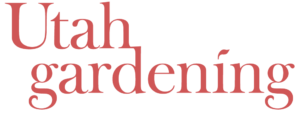Pears
Bartlett (the most popular type of European pear) and Asian pears are self-fruitful but other pear trees around will help increase the production. Other types need cross-pollination. European pears and Asian pears can’t cross-pollinate each other as they bloom in different times.
Requirements
Pears are related to apples, but can be easier to grow than apples – they have less problems in bugs and diseases.
Size
20′ tall 12′ wide for European full-size pear trees; dwarf is ~10′ tall. Asian pears can be bigger so check your cultivar.
Zone
European pear: 4-8; Asian pear: 5-9. Check your planting zone here.
Sun/shade
6-8 full sun is required for sweet fruits. Pear tree chill hours can range from 200-800. The smaller the number, the higher chance it will bloom too early which can get killed by spring frost.
Water
Deep water once a week or more on hot days for young trees. For a mature tree, water it during dry spells.
Soil
Ideally PH 6-7. Amend the soil with organic matter if you have heavy clay soil (which is common in Utah.)
USU soil testing
Pollination
Either they’re self-pollinated or not, they benefit from the other type of pear tree around. Check out this chart for an ideal partner for your pear tree.
How to plant a tree?
Where to buy a tree?
How to take care of them
With the proper care, you can have high produce every year and for over 50 years (standard) or 15-25 years (semi-dwarf, dwarf).

Pruning
Do it when it’s dormant – late winter/early spring. Similar to the apple tree – central leader system.
USU – how to prune an apple tree video
Fertilizing
Fertelize in early spring and mulch 3′ around 3-4″ deep to control weed. Do NOT fertilize after mid-July as new growth will be killed by frost.
Worm control
Spray pyrethrin in early spring or hang codling moth traps during flowering if you opt for organic way.
Fruit thinning
Thinning should be performed by hand. Leave only the largest apple in a cluster, and space apples about every 6-8″ along the branch.
Harvesting
European pears don’t ripen on trees while Asian pears do. Pick European pears when the skin color becomes light green, and it will be easily twisted off when it’s mature.
Storing
Some pears can last for 2-3 months in cold storage. You can choose to can the extra pears or make jam.
